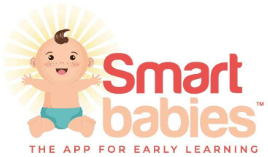How Babies Make Meaning

 By Dr. S. H. Jacob
By Dr. S. H. Jacob
www.shjacob.io
Author, Your Baby’s Brain, Intellect, and You
Content Writer, SmartBabies App
Are Babies Passive or Active Learners?
In this article, I’d like to make you aware of one thing, namely, that your baby is not a passive receptacle that is waiting to be filled with information. I know that this idea may sound strange to most parents. Most parents believe that their babies absorb information, and that’s how they come to know stuff. This notion couldn’t be farther from the truth.
Babies are not passive beings, nor are they empty receptacles waiting to be filled with what we consider to be important for them to learn. Quite the contrary, babies are active beings. They are born to make meaning of their surroundings, to construct knowledge for themselves, and at their stage of development. Finally, babies, like you and me, don’t absorb facts. They assimilate new experiences with what they already know. This is a big difference in that assimilation implies an active process of trying to relate what one is trying to understand to what one already knows.
I’d like to share with you how I, and other constructivist psychologists, view how humans form knowledge. I believe if you adopt this point of view, you will transform the way you look at your child forever. In short, I hope that the constructivist point of view will be transformative for you and that it will be a paradigm shift for you. We aim to enable babies to become independent thinkers, discoveries, and inventors.
Principles of How Babies Form Knowledge?
-
Babies are knowledge makers.
Babies learn best by using their senses and manipulating things to learn about them. They make meaning of things by perceiving and acting on them. Their innate curiosity drives them to explore and invent. They are also innately equipped to learn any human language they encounter.
-
Meaning lies in individuals, not in objects.
People determine the meaning of an object, a process, or a concept, and this meaning may be different from one individual to the next. A person’s understanding of an object, a concept, or a principle depends on his present ways of knowing and what he already knows about it.
-
Knowledge is its reward.
Understanding, solving problems, being creative, and making meaning do not depend on outside rewards for motivation – they have their inherent rewards.
-
Meaning is personal and pluralistic.
Learning is a supremely personal, constructive process. The best way to learn something is to relate it to what you already know. Your baby learns the same way. Start with what your child already knows and can do. Babies learn best when they are given a chance to manipulate, transform, and create knowledge for themselves.
-
To know is to act.
The process of doing something is more important than simply getting the right result. The emphasis should be on learning how to learn and think—not merely learning specific responses to certain cues.
-
We build intelligence by emphasizing the ways of knowing.
Nurturing the underlying processes of intelligence requires promoting an attitude that permits babies and young children to be physically and mentally active, to discover through their spontaneous actions, and to invent as necessary. In doing so, we respect—and conform to—the natural, spontaneous ways children form knowledge.
-
The stages of development define the limits of the knowledge-making process.
This means that development dictates what can be learned at any given time.
Matching your baby’s stage of development with appropriately chosen toys, materials, and activities is extremely important. Without this proper match, your child might be frustrated or bored.
-
Social context is the key to healthy cognitive development.
Finally, we must remember that all intellectual development occurs in an appropriate social context. Babies develop their fullest potential through exploration and play, with great latitude to choose what they are interested in, especially in an atmosphere of unconditional love, encouragement, support, and coaching. The support and guidance that you provide quite naturally are crucial to your baby’s intellectual development. For example, you, like most parents, will show your toddler how to fit an object into the right slot in a shape sorter. And you will do this time and time again—tirelessly—until he does it on his own. You will pick a task that your baby can’t quite do by himself and coach him to do it, spurring his development forward. Then as your baby’s competence increases, you’ll step back, allowing him more and more freedom to accomplish the task on his own.




